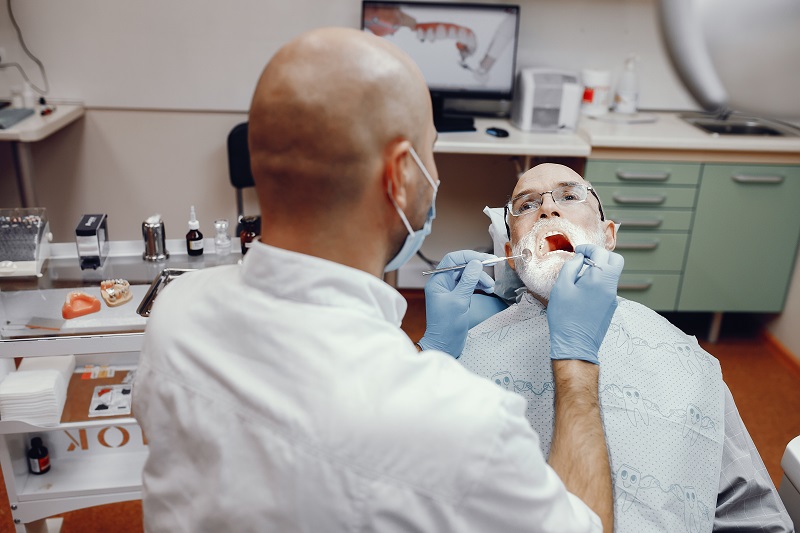Dental implants will greatly help restore your smile and health. It is important to practice proper oral care following dental implant surgery. It will act as an insurance for your new teeth. It boosts the healing process, keeps away infection, and aids in long-term success of those artificial teeth.
In this post, we will lead you step by step through the key stages of post dental implant surgery care; provide advice for more rapid healing after the procedure is finished; and offer guidance on looking after your new teeth long-term.
What are dental implants?
Dental implants are artificial roots made from titanium traditionally intended to hold replacements for teeth in place. These replacement teeth can be crowns, bridges or dentures. They offer a durable foundation that can look and function like natural teeth, giving people back the ability to chew, talk and look good while also preserving the bone structure of the jaws.
Immediate Post-Surgery Care
After the dental implant procedure, your dentist in Dallas will provide specific dental implant recovery guide instructions tailored to your case. Following these carefully is important. Some general steps include:
- Control swelling and bleeding – Apply an ice pack to your cheek and bite down gently on gauze to reduce bleeding.
- Rest – Take it easy for the first 24–48 hours. Avoid strenuous exercise or heavy lifting, as it can slow down healing.
- Pain management – Over-the-counter or prescribed pain medications can help minimize discomfort.
Healing Tips for Dental Implants
Healing of dental implants may take several weeks to months. However, the healing time is entirely dependent on your body and the number of implants placed. Some healing tips for dental implants are as follows:
- Keep your head elevated when lying down to reduce swelling.
- Avoid smoking and alcohol, as they can delay recovery.
- Stay hydrated to support tissue repair.
- Follow your dentist’s instructions about stitches and follow-up appointments.
Oral Hygiene After Dental Implants
To prevent infection and promote healing, it is essential to maintain excellent oral hygiene. Post-surgery oral hygiene guidelines may include:
- Brushing – Use a soft-bristled toothbrush to gently clean your teeth and implants twice a day.
- Mouth rinsing – Your dentist may recommend a non-alcoholic antibacterial rinse to keep bacteria under control.
- Flossing – Special implant-friendly floss or water flossers can help clean around the implant without irritation.
Developing strong hygiene habits ensures your implants remain healthy for the long run.
Preventing Infection
Infection, one of the highest risks after implant surgery. To avoid infection dental implants, follow these precautions:
- Take prescribed antibiotics as directed.
- Keep the surgical site clean but avoid aggressive brushing in the area during the first few days.
- Report any persistent swelling, pus, or fever to your dentist right away.
- Good hygiene and regular monitoring help avoid serious complications.
Foods After Dental Implant Surgery
Your diet plays a big role in recovery. Choosing the right foods after dental implant surgery helps reduce strain on the surgical site while providing necessary nutrients. Stick to:
- Soft foods like yogurt, smoothies, oatmeal, mashed potatoes, and soups.
- Avoid hot, spicy, or crunchy foods in the first few days.
- Gradually reintroduce harder foods as healing progresses.
- Balanced nutrition supports quicker recovery and overall oral health.
Long-Term Dental Implant Care
Once healing is complete, implants should be treated like natural teeth. Proper long-term dental implant care involves:
- Regular dental check-ups at least twice a year.
- Professional cleanings to remove plaque and tartar around the implant.
- Protecting your implants if you grind your teeth by using a night guard.
Dental Implant Maintenance Tips
To keep your smile strong and lasting, follow these dental implant maintenance tips:
- Maintain daily brushing and flossing routines.
- Replace worn-out toothbrushes regularly.
- Limit sugary foods and drinks that can increase bacteria buildup.
- Stay consistent with professional cleanings and exams.
Want to transform your teeth with dental implants? Book an appointment
Dental implants are effective for treating missing teeth, but it depends on how you look after them. And every step from immediate post dental implant surgery care to weekly dental implant maintenance makes all the difference.
Following these healing tips for dental implants, taking good care with your teeth and tongue as well as thinking about the food you eat will let you have a beautiful, well-functioning smile for many years to come. Schedule an appointment by calling at 469-249-9017 to know how we can help you.
Frequently Asked Questions
1 . Who is a good candidate for dental implants?
People with healthy gums, sufficient jawbone, and good overall health are ideal candidates for implants.
2. How long does it take to get a dental implant?
The process usually takes 3 to 6 months, including healing and the placement of the crown.
3. Are dental implants painful?
Most patients experience minimal pain during surgery, with mild soreness afterward managed by pain medication.
4. What is the success rate of dental implants?
Dental implants have a success rate of about 95% to 98% when cared for properly with good oral hygiene.

